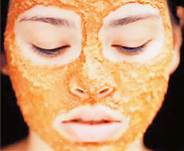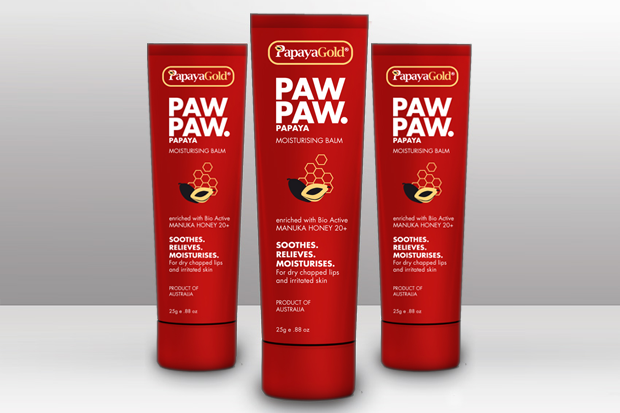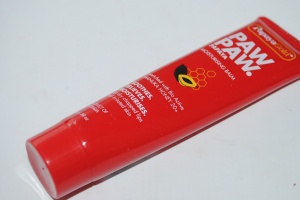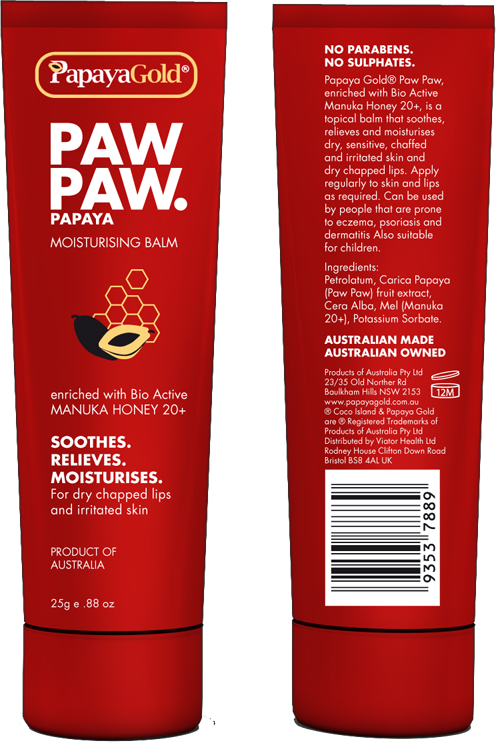ReallyRee blog post
PapayaGold Paw Paw Balm Review by ReallyRee
Royal tour: Prince George steals the show as support for monarchy rises
As the royal tour draws to a close, there’s no doubt Prince George stole the limelight. But what has the young family’s visit revealed about Australia and New Zealand’s attitudes to the monarchy?
From the moment he was carried down the aircraft steps by his mother on their arrival in New Zealand on Monday 7 April, Prince George was the star of the show.
He has only appeared twice (other than at airports) and even then the settings have been carefully managed – first at a specially convened playgroup in Government House, Wellington and then, memorably, at a new enclosure at Taronga Zoo in Sydney.
On each occasion the appeal of a nine-month-old future king has upstaged even the glamour of a future queen consort and her husband.
http://www.bbc.co.uk/news/uk-27139389
We’re coming to Boots!

PapayaGold Paw Paw Moisturising Balm is available in selected Boots stores TODAY! Check out the lovely new stand and get yours before they are all snapped up!
Four reasons to eat Manuka honey
It’s attributed with health superpowers, so should Manuka honey be a regular part of your diet?

Manuka honey is not your average honey. Not only is it delicious spread on a hot crumpet or used in cooking, it also has some powerful health credentials.
Native to New Zealand’s North Island, Manuka is the honey’s Maori-given name but is known scientifically as Leptospermum scoparium. Maori people used the leaves of the Manuka plant for a medicinal drink that was used to reduce fever-like symptoms, while the oil from the crushed leaves was applied to wounds as a natural antiseptic.
Manuka is an expensive product, mainly because it is a mono-floral honey (made by bees that interact with just one species of flower), derived from blooms which flower for just 2-6 weeks a year.
Each tub of Manuka honey bears its own Unique Manuka Factor (UMF) – a scale that identifies the level of anti-bacterial potency in that particular supply. A UMF rating of 10+ is the minimum required to gain the UMF rating and thus be considered effective for purpose. Honey that meets this minimum requirement is commonly referred to as Active Manuka Honey. Optimum levels of UMF are 10+ to 15+.
All honeys boast some level of antibacterial powers, but Manuka is accepted to contain properties that are superior to those found in other strains.
So why should you add a regular teaspoonful to your diet?
1. Digestive health:
If you’re feeling bloated and uncomfortable then give Manuka honey can aid a variety of issues, including bloating, acid reflux, indigestion, stomach ulcers and irritable bowel syndrome. Simply stir into a mug of hot water or tea to soothe your pains.
2. Immunity:
Feeling a cold or sore throat coming on? Stir a teaspoon of Manuka honey into your hot lemon drink to prevent the cold bug taking a grip. Manuka honey is high in antibacterial levels and recommended in the treatment of ulcers, strep throat, cold sores, skin infections, cuts and abrasions.
3. Skin Ailments:
When applied directly, Manuka honey provides excellent treatment for skin conditions such as eczema, insect bites, burns, and surgery wounds. It also helps reduce scarring and healing time and can also be used as a facemask or to soothe sunburn.
Acne and rosacea sufferers can benefit from the use of Manuka honey as a skin cleanser; its anti-inflammatory qualities help skin conditions without removing natural oils.
4. Energy:
Manuka honey is great for a short-term energy boost as it is it made up purely of carbohydrates, such as fructoseand glucose – your body’s primary energy source.
Having a Manuka honey-swirled hot drink in the morning should give you an energy lift for your early commute, but do remember to eat complex carbohydrates such as wholegrain bread and fibre breakfast cereal too, to avoid any potential energy slumps that can occur when consuming Manuka honey by itself.
Be careful of consuming too much honey in general as this is a source of sugar, meaning that an excessive intake can lead to weight gain, regardless of the honey’s source.
http://www.cosmopolitan.co.uk/diet-fitness/diets/manuka-honey-benefits-5033
Another new stockist!

PapayaGold Paw Paw Moisurising Balm is now available from another new stockist!
Papaya can treat acne!

Papaya in its green or raw form has been used for centuries as a natural way to treat acne. The effectiveness of papaya for acne is debatable, but many users have experienced positive results after just a few applications. Papaya has an exfoliating capability that sloughs off dead skin cells to clear the way for healthy, unclogged pores. Papain, an enzyme that is found in papaya, has been found to be effective in reducing inflammation and producing softer, smoother skin.
The use of papaya products for medicinal purposes dates back hundreds of years, with the first recorded account of the distribution and cultivation of its seeds occurring in the mid-14th century. Found primarily in South America and Central America, it was then taken to Asia and Europe before ending up on the tropical peninsula of Florida. Using papaya for acne treatment is a popular alternative to costly and chemically derived over-the-counter and prescription remedies.
Using papaya to prevent acne or treat it is a remedy that many people find beneficial. Its preventative power comes from the cleansing nature of its flesh, which can be pressed to the skin to effectively remove dead skin cells and make way for newer, fresher skin. By cleaning out clogged pores, papaya prevents acne from appearing. For acne that has already emerged, papaya’s strong decomposition enzyme, papain, works to eradicate it by breaking down its harmful elements.
Via wiseGEEK.
New online stockist – The Healthcounter

We are very happy that The Healthcounter are now stocking our fabulous PapayaGold Paw Paw balm! Go to healthcounter.com and get yours now!
The PapayaGold PAWPAW wonder has arrived

Australia’s wonder PAW PAW balm can be found in the handbags of the glossiest celebrities and has achieved a cult status worldwide thanks to its skin healing and moisturising properties. Sporting a new look and name, Australia’s second best-selling Paw Paw ointment has now finally reached our shores, under the name PapayaGold PAWPAW balm.
The enhanced formulation combines the benefits of Australia’s tropical Paw Paw, further enriched with New Zealand’s bioactive Manuka Honey with a 20+ grade. Farmed at altitude from the nectar, Manuka Honey’s healing properties have been celebrated for centuries. Manuka Honey with a grade of 20 and above is considered therapeutic and has been hailed “miracle” honey by researchers at Cardiff University.
Papaya or Paw Paw as it is known in its native Australia, has been cultivated for centuries and sought after for its skin healing properties when applied topically. It is believed to help soothe irritated skin, relieve dryness and even conditions like eczema or blemishes. It makes an outstanding lip balm to treat dry, chapped lips and can quickly restore moisture to areas like knees, elbows, cuticles and more.
Traditionally used as a topical treatment to soothe sensitive or irritated skin as well as dry, chapped lips, it has become a handbag essential for those in the know. Some use it to keep skin hydrated during long-haul flights. Sporty types like to have one handy when hitting the great outdoors and it can make an excellent primer to prep skin for the perfectionists in us too.
CLICK HERE FOR YOUR CHANCE TO WIN 1 OF 10 PAPAYAGOLD PAWPAW BALMS





